From having the greatest of soldiers to winning wars, taking territories, commanding respect, and even down to liberating their people; many African warriors right from the BCs to ADs and even the colonial era have risen in different tribes and kingdoms.
Even though many of the Kingdoms these warriors took charge of have gone into extinction, stories of them have been told over and time again. Africa’s greatest warriors of all time include men and women such as Pharaoh Taharqa, Amarinarinas, Queen Amina, Shaka Zulu, Shango, Ann Nzingha, Yaa Asantewa, Cetschwa Kampande, and Hatshepsut.
Here’s what you should know about the greatest African warriors and their deeds.
15 Greatest African Warriors You Need To Know
1. Pharoah Taharqa (690 BC)
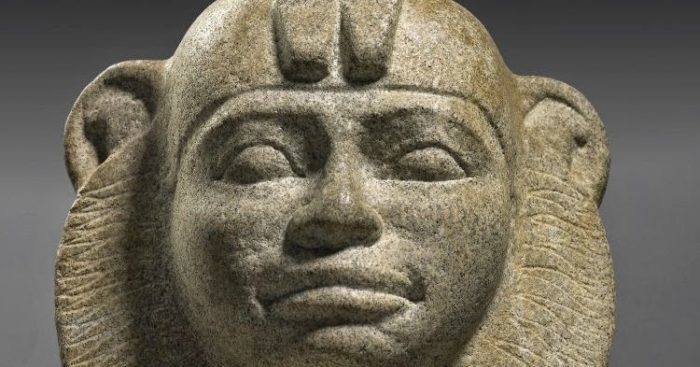
Known as a black Pharoah, Taharqa was the 4th Pharoah of the 25th Dynasty of Egypt and the King of Kush. He started to rule in 690 BC after the death of Shabaka.
He was one of the Ethiopian pharaohs to have ruled Egypt. His reign was filled with the war against Assyria that mostly went in favor of his people.
At the age of 20, Taharqa’s army defeated the Assyrians and went on to win several other battles that would mark his name in the sands of time as an African warrior to never be gotten.
His rule came to an end after the Assyrians captured his territory and forced him to flee. He died in Thebes in 664 BC and was laid to rest in Nuri, Northern Sudan.
2. Queen Amanirenas (60 BC)
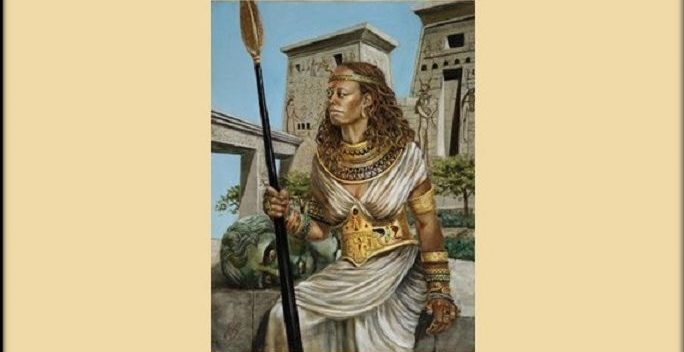
Amanerinas was blind in one eye and became popular as “The one-eyed Queen”. She started her reign as the queen of Kush in 60 BC to 10 BC.
With her as a leader, she headed to the battle fields and looked at wars in the eyes until she fought well enough to expand Kush by conquest. One of her most memorable fights was against Rome, one of the most feared kingdoms at the time.
Interestingly, she won against the Romans who later fought back and claimed victory. This would push her into another fight to win back the lost territory.
At the end of it all, Amanirenas’s fighting prowess and being a woman of her people, she pushed until there was peace between her people and the Romans.
3. Ramesses II The Great (1279 BC)
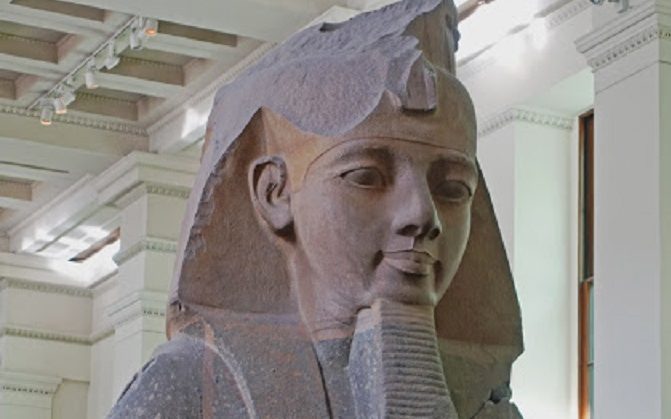
History has given different sides to the story of Ramesses. While others claim that he was only a showman and propagandist, others say he had a successful reign as Pharoah.
Whatever the case, the leader is mostly regarded as the third Egyptian Pharoah of the 19th Dynasty and has his name written in history as Ramesses II- a great warrior with victories over the Hittites and The Battle of Kadesh.
Aside from the battles he fought, it was during his reign that there was the first known peace treaty in 1258 BC with the Hittites. He further had the territory of Egypt secured and his reign flourished until he died at the age of 96.
4. Shaka Zulu (1816 AD)
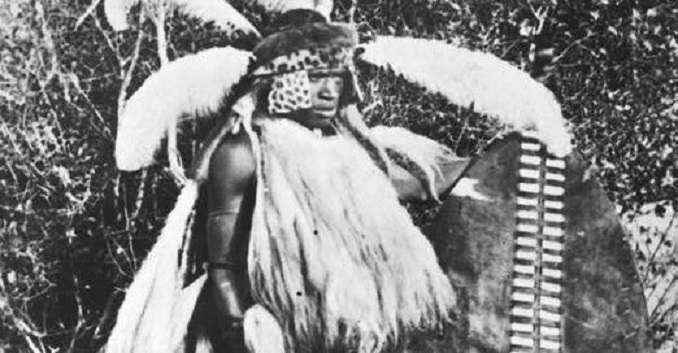
He was one of the greatest kings of Southern Africa and of the Zulu Kingdom. At an early age, he started training as a warrior, and by the time he became the leader of the Zulu people, he was good enough to start the reformation of his kingdom.
His military became one of the best and he was able to claim many territories.
The deeds of Shaka have helped in making the Zulu Kingdom popular across many nations. In his time as a king and warrior, he created a short spear called Assegai which was mostly used in wars. He also created sophisticated shields for his army.
He reigned from 1816 AD – 1828 following an assassination by his half-brothers.
5. Shango (1500 AD)
Shango was the 4th King of the Oyo Empire and is often referred to as a deity in Yoruba land and Benin. He has been described as a great and powerful man whose voice was like thunder and had a mouth that would spread fire.
With strength and always ready for battle, Shango fast became known among the Yoruba people. However, his glory was lost as fast as it came when a magician challenged him before his people.
When lost, he was said to have committed suicide. His followers claimed that he ascended and not died as reported.
The great deeds of Shango in battles and many other phases of life during his reign made him one of the greatest African warriors. People in Oyo and beyond choose to worship him. His worship has reached the shores of Brazil, Cuba, and Haiti.
6. Hannibal of Carthage (221 BC)
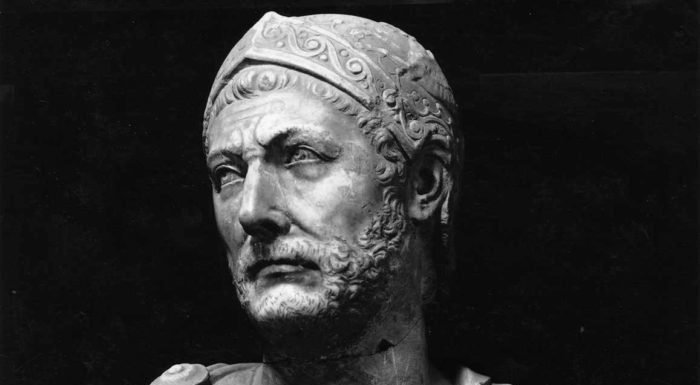
In human history, Hannibal Barca of Carthage (present-day Tunisia) is considered one of the greatest military commanders to have ever lived. He was a commander responsible for commanding the second Punic war and also fought in wars such as the Barcid Conquest of Hispania, and the Roman-Seleucid War.
He also had success in the diffcult Trebbia, Cannae, and Trasimene wars.
Hannibal’s glory as a warrior started in his early years and by the time he was 26, he already had an army he was controlling. The army grew to 100,000 troops and 40 war elephants.
Afte marking his name in history, Hannibal committed suicide in what is believed to be around 184 BC to 181 BC. He chose death over turning himself to the Roman years after he started participating in politics.
7. Behanzin Hossu Bowelle (1889)
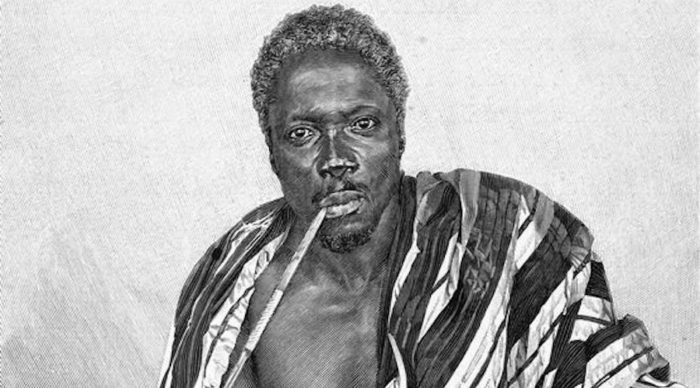
Behanizin, also known as King Shark was born in Abomey in 1844. He is popular for ruling Dahomey (Present-day Benin Republic) and being the last king of the kingdom.
His name often comes up as an African leader who fought as hard as he could to stop the colonialists from controlling his kingdom.
His resistance to the colonialists made him one among African leaders to have loved his people dearly. He was considered the most powerful king in West Africa and an African warrior in the 18th century.
Under his watch, his army rose to become 15,000 men and 5,000 women (Amazon).
8. The Dahomy Amazons (1600s-1904)
The Dahomy Amazons were female army of the Gbe ethnic group of the ancient kingdom of Dahomy in present Benin Republic.
The women are the only few documented female armies in modern history.
Some of the warriors were recruited as early as when they were 8 years old and counted to about 6,000 by the mid-19th century.
While protecting Dahomy, the women warriors fought many wars, including the fight against the European who documented their fight as admirable.
Although they stood firm in the first and second Franco-Dahomean Wars, many of the soldiers died while the remaining were disbanded when the kingdom became a French protectorate.
9. Mansa Kankan Musa (1312)
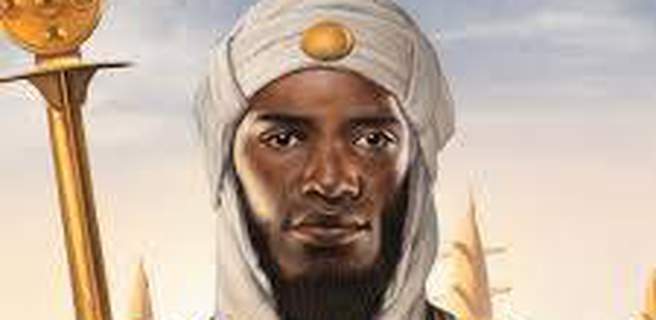
In his 25 years of rule, Musa was able to conquer more than 20 different cities and triple the size of his Kingdom, Mali.
Away from wars, Musa established himself as the wealthiest man to have ever lived. He had a net worth of $400 billion in today’s money.
He further promoted learning, and Islamic education and turned his Kingdom into a major trade center in Africa.
Read Also: 10 Greatest African Queens They Didn’t Tell You About
10. Queen Amina (1576 AD)
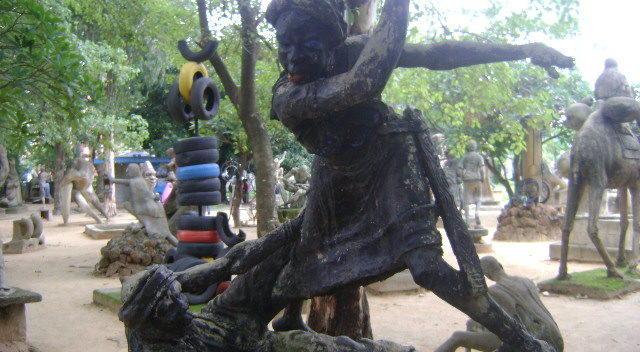
Often regarded as the warrior Queen, Amina became a queen in Zazzau (present-day Zaria) in Nigeria between 1576 and 1610.
Her reign would give rise to the expansion of Zazzau to Idah, Nupe, and even Kano. She was known as an African warrior who led men to many battles that mostly came out victorious.
She ruled for 34 years but her name has been immortalized in the tales of Africans who stopped at nothing to protect their kingdoms and people.
11. Oba Ewuare
While “Edo” remains one of the most daring kingdoms in Nigeria and Africa, Oba Ewuare who had magical powers is famous for giving it most of the prestige it currently enjoys.
His tale started with the death of his father after which he was exiled and his brother became Oba.
There was chaos between the brothers but it did not become a war until Ewuare “Prince Ogun” returned to Benin.
The war led the death of his brother (then Oba) and many others in the city.
Having fought to take charge of Benin and many other territories to enlarge his, Ewuaere has remained celebrated for many decades. He changed many laws of Benin and renamed the city “Edo” in honor of the man who traded his life for his.
He started to rule in 1440 and before his death in 1473, he had already made the arts, festivals, and cultures of the Benin people popular across many borders.
12. Cetschwa KaMpande (1873)
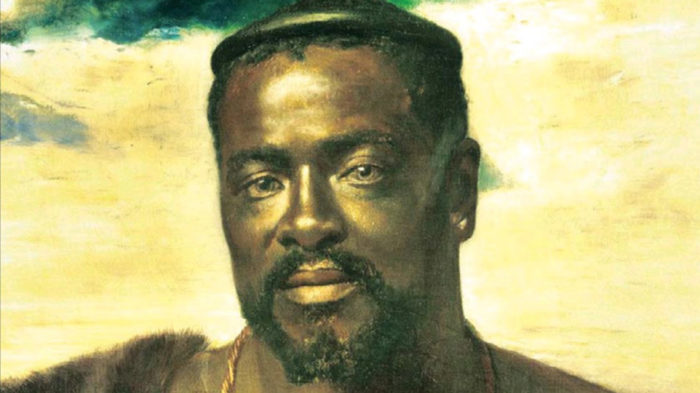
He is one of the African Warriors and was a Zulu king from 1873 to 1879. Cetschwa led the Zulus to a successful victory in the Anglo-Zulu war in 1879. His victory however did not last as the British retaliated and forced him into surrendering. This was followed by an exile to Cape Town and later London.
KaMpande died in 1884 as the last king of an independent Zulu Kingdom.
13. Ezana Of Axum (325 CE to 360 CE)
Axum, also known as Aksum (ancient Ethiopia) flourished under the rule of Ezana and became a major trade center. During his reign, he conquered Moroe and Kush around 350 BC.
In addition, his reign brought a complete change for the people of Axum when he converted to Christianity and brought faith to his Kingdom.
14. Sundiata Keita (1235 C.E. to 1255 C.E.)
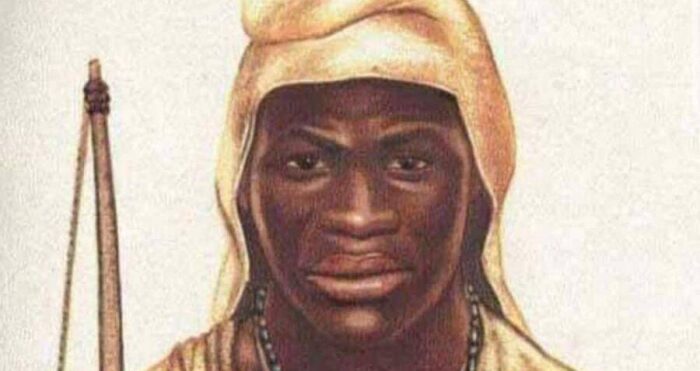
Sundiata belonged to the Malinke tribe of West Africa and was a leader of the Kangaba Kingdom on the present-day Mali-Gambia border.
Although his early life had little or nothing to do with being a warrior as he was a sickly brother among 12 royal siblings, he later had one of the largest armies at the time.
He is most notable for challenging and winning the Battle of Kirina against the Susu people of Sumanguru in present-day Koulikoro.
His fighting prowess also led to his seizing Kumbi which is also known as Koumbi Saleh in ancient Ghana and modern Mali.
Years passed and so was his conquest of many territories. Nonetheless, he paused with his conquering of kingdoms in 1240 but he had raised a lot of generals that worked hard to extend his boundaries to cover some parts of the northern and southern of the Sahara.
15. Yohannes IV (18th Century)
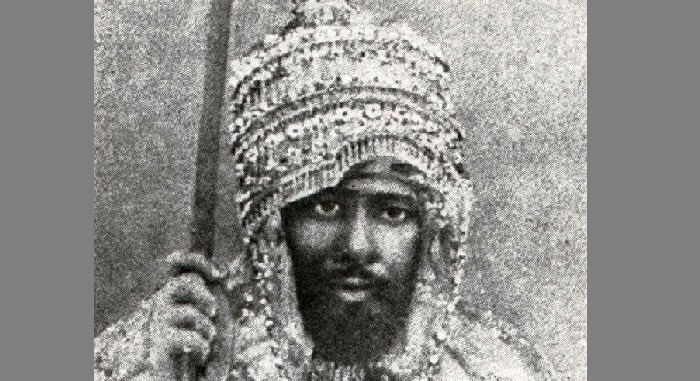
Born Lij Kassa Mercha and having a horse name Abba Bezbiz, Yohannes IV was an Ethiopian Emperor and is remembered for fighting wars till his death in 1889.
While history has accounted for him to have started as a rebel, the exact reason has not been well-established.
What remains at the forefront of his life as an African warrior is that he started raising an army and in no time, his army grew and defeated šum serye and Gebre Mikael among others.
Through his battles, he became the commander of the main army and received a high Ethiopian aristocratic and court title known as däjazmač.
He also took several territories of Ethiopia and Eritrea and also had a good relationship with the British who were generous to him with weapons.
He is most notable for protecting his protectorate from the external forces of Egypt, Italy, and the Mahdists.
The ruler who lived many years of his life by sword died by the sword in 1889 when he was killed at the Battle of Gallabat by the Mahdist Sudanese.










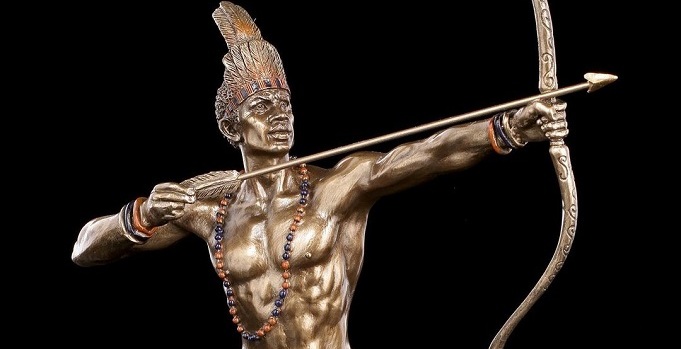










Discussion about this post